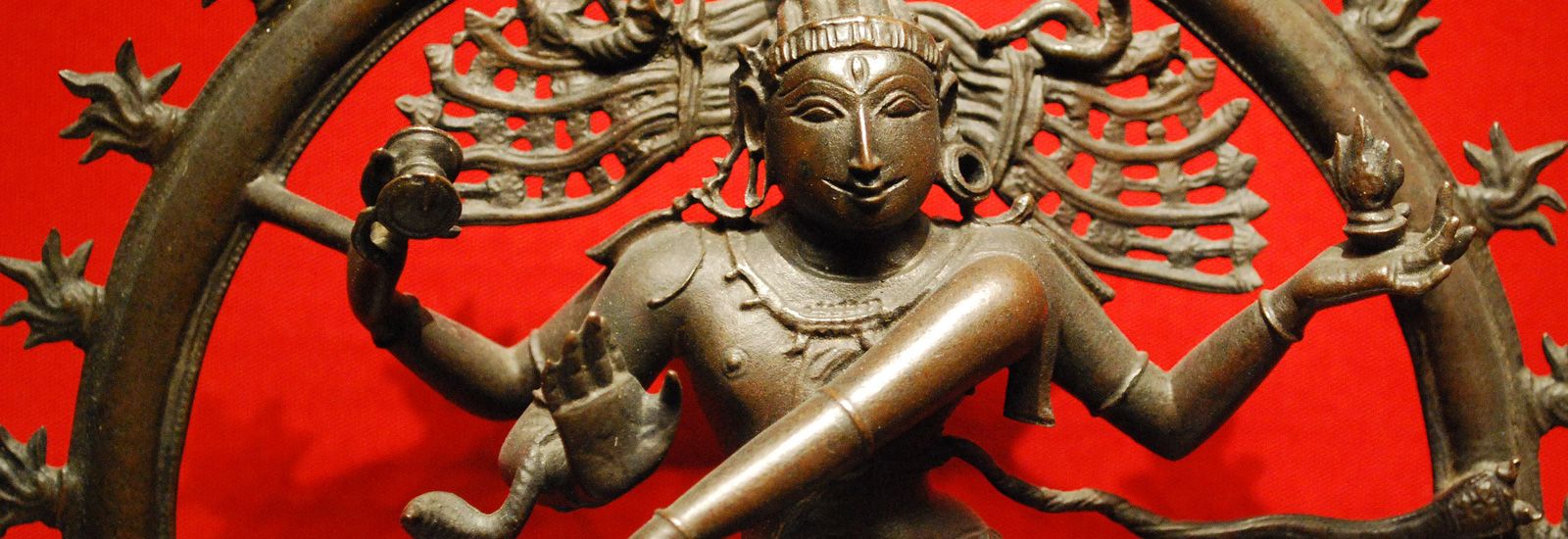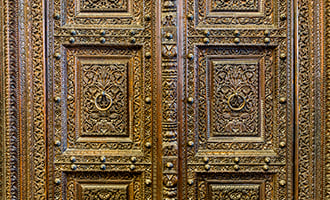
Classics and Asian and Middle Eastern Studies
Course overview
UCAS code: Q8T9 (Classics with Asian and Middle Eastern Studies); T9Q8 (Asian and Middle Eastern Studies with Classics)
Entrance requirements: AAA (with As in Latin and Greek if taken)
Course duration: Q8T9: 4 years (BA); T9Q8: 3 or 4 years (BA) depending on language chosen
Subject requirements
Required subjects: Not applicable
Recommended subjects: Not applicable
Helpful subjects: Latin, Ancient Greek, Classical Civilisation, Ancient History or a modern language
Other course requirements
Admissions tests: CAT
Written Work: Two pieces
Classics contact
Tel: +44 (0) 1865 288391
Email: [email protected]
Asian and Middle Eastern Studies contact
Tel: +44 (0) 1865 278312
Email: [email protected]
Unistats information for each course combination can be found at the bottom of the page
Please note that there may be no data available if the number of course participants is very small.
About the course
This course allows you to combine the study of an Asian or Middle Eastern language and culture with Latin and/or Greek and the study of the ancient world.
There are two options: Classics with Asian and Middle Eastern Studies (Q8T9) and Asian and Middle Eastern Studies with Classics (T9Q8). In each case the subject mentioned first is the main subject (about two-thirds of the degree) and the second is an additional subject (about one-third of the degree).
This joint honours degree provides an exciting opportunity for students who want to focus on interdisciplinary studies. It enables students to explore the cultural development and crossover in places such as the Middle East, Iran, Egypt and India. You will study the relationship between the languages and cultures of the great monotheistic religions within their various Greek and Roman contexts.
Those who choose Arabic, Persian or Turkish as their main language for the Asian and Middle Eastern Studies with Classics degree will spend their second year undertaking immersive language study abroad.
Please note that the course video on this page was filmed prior to the renaming of the course and of the Bodleian Art, Archaeology and Ancient World Library.
Oxford is ideally placed for the combined study of Classics and Asian and Middle Eastern Studies, not least due to the numerous and varied teaching staff in each faculty, and the resources of the Ashmolean Museum, the Bodleian Art, Archaeology and Ancient World Library and the China Centre. The Nizami Ganjavi Library has core collections comprising Islamic, South Asian and Jewish Studies.
Oxford has the largest Classics faculty in the world, with over sixty full-time academic staff-members. It has outstanding teaching, library and museum resources, including the Bodleian Art, Archaeology and Ancient World Library and other Bodleian Libraries, the Ashmolean Museum and a designated Classics Centre.
 |  | |
'The course is an enriching opportunity to broaden the usual frontiers of the study of Classics, by adding to it one language considered to be culturally external to the Greek and Roman civilisations. The languages to choose between are numerous, each of which has the potential to change your perspective both of Classics and of the world. On the other hand, the study of Classics will teach you a lot about how to look at the language of the [Asian and Middle Eastern Studies] part. I am reading Classics with Arabic. Having chosen a linguistics paper for Mods (second-year examinations), which focuses on Indo-European, the study of Arabic, a Semitic and unrelated language, is fascinating. In many ways, this course can be remarkably stimulating for students who wish to learn about linguistics. You can choose to take Sanskrit or Armenian, for example, both instrumental in understanding Indo-European.' Dominique | 'I’m a third year studying Classics and Arabic, and absolutely love both my college and my course. Classics is fantastic if you’re not quite sure what you like: you can do literature, philosophy, history, and some fairly hard-core linguistics along the way. I did a linguistics paper and a modern philosophy paper for my second year exams ... After those first exams, I chose five Classics papers from a vast range of options, alongside my three Arabic papers. I’m focusing on Greek history and Latin literature, though I’m considering a Byzantine paper as well. The Arabic classes are two hours long, three times a week. This was a bit of a shock to start with but it is really satisfying to come away knowing so much more after each class. Arabic grammar is fiendish, but I haven’t come across anything as bad as Greek -mi verbs yet!' Clare |
Unistats information
Discover Uni course data provides applicants with Unistats statistics about undergraduate life at Oxford for a particular undergraduate course.
Please select 'see course data' to view the full Unistats data for this course.
Please note that there may be no data available if the number of course participants is very small.
Visit the Studying at Oxford section of this page for a more general insight into what studying here is likely to be like.
A typical week
Your time will be divided between lectures, tutorials and private study. The working week is typically structured around two tutorials in different subjects.
Most of your independent work will be in preparation of essays for your tutorials, although systematic language-learning and reading of texts will also require considerable time and effort.
Much of the teaching will take place in your college, but lectures are given in the Classics Faculty, the Asian and Middle Eastern Studies Faculty and the Examination Schools, and for particular subjects you may work with tutors from other colleges.
Tutorials in colleges usually involve up to three students and a tutor. Class sizes will vary depending on the options you choose, and there are usually 5-20 students in a class.
Most tutorials, classes, and lectures are delivered by academics who are specialists in their subject. Many are world-leading experts with years of experience in teaching and research. Some teaching may also be delivered by qualified postgraduate students studying at doctoral level.
To find out more about how our teaching year is structured, visit our Academic Year page.
Course structure
Classics with Asian and Middle Eastern Studies
Years 1-2 (Terms 1-5) | Years 2, 3 and 4 (Terms 6–12) |
|---|---|
CoursesFollow the course for Classics (refer to Classics pages) | CoursesCarry on with Classics options and start with chosen language from:
|
| Assessment First University examinations in Classics (refer to the Classics course page) | AssessmentFinal University examinations: eight written papers (five in Classics, three in Asian and Middle Eastern Studies); one paper may be substituted by a thesis. |
Course structure
Asian and Middle Eastern Studies with Classics
Year 1 | Year 2 (with year abroad) | Years 2 and 3 (without a year abroad) or |
|---|---|---|
CoursesSelect main language:
| CoursesYear abroad: approved course of language instruction | CoursesCarry on with Asian and Middle Eastern Studies options and choose either Greek or Latin More information about current options is available on the Classics website and Asian and Middle Eastern Studies website. |
AssessmentFirst University examinations in Asian and Middle Eastern Studies (refer to the Asian and Middle Eastern Studies course page) | AssessmentFinal University examinations: eight to ten written papers (five to seven in Asian and Middle Eastern Studies, three in Classics) |
The content and format of this course may change in some circumstances. Read further information about potential course changes.
Academic requirements
Qualification | Requirement |
|---|---|
A-levels: | AAA (with As in Latin and Greek, if taken) |
Advanced Highers: | AA/AAB (with A in Latin, if taken) |
International Baccalaureate (IB): | 39 (including core points) with 666 at HL, including 6s at HL in Latin and Greek if taken |
Any other equivalent qualification: | View information on other UK qualifications, and international qualifications. |
Wherever possible, your grades are considered in the context in which they have been achieved.
Read further information on how we use contextual data.
Subject requirements
Helpful | Either or both classical languages (Latin and Ancient Greek), Classical Civilisation, Ancient History or a modern language can be helpful to students in completing this course, although they are not required for admission. Students are not expected to have studied an Asian or Middle Eastern language before. |
If a practical component forms part of any of your science A‐levels used to meet your offer, we expect you to pass it.
If English is not your first language you may also need to meet our English language requirements.
Applying
All candidates must follow the application procedure as shown on our Applying to Oxford pages.
The following information gives specific details for students applying for this course.
Admissions test
Classics with Asian and Middle Eastern Studies - Q8T9
Test: | CAT |
|---|---|
Test dates: | 22, 23 & 24 October 2025 |
Registration window: | Registration: 18 June – 19 September (6pm BST) Booking: 18 August – 26 September (6pm BST) |
Asian and Middle Eastern Studies with Classics - T9Q8
Test: | |
|---|---|
Test date: | 22, 23 & 24 October 2025 |
Registration deadline: | To be confirmed |
All candidates must take the relevant section(s) of the Classics Admissions Test (CAT) as part of their application.
All the information you need to arrange to take your test as well as how best to prepare can be found on your test page.
Written work
Description: | Two pieces of written work. Where possible, at least one of these should be in an area relevant to Classics. Please contact the admissions office at your chosen college if you have any further questions about the submission of written work. For further details, visit the Classics and the Asian and Middle Eastern Studies pages. |
|---|---|
Submission deadline: | 10 November 2025 |
Read further guidance on the submission of written work.
What are tutors looking for?
Successful candidates will be expected to display general language aptitude, including competence in Latin or Greek if they are studying the classical language(s) to A-level or equivalent.
Tutors in both Classics and Asian and Middle Eastern Studies are also looking for potential and an enquiring mind, and a real commitment to this wide-ranging subject. The ability to sustain an argument is also important.
Visit the Classics website and Asian and Middle Eastern Studies website for more detail on the selection criteria for this course.
Careers
Students develop good linguistic and analytical abilities and will be very attractive to employers from a wide variety of sectors. Knowledge of a modern language opens up opportunities for careers with international companies and organisations.
We don't want anyone who has the academic ability to get a place to study here to be held back by their financial circumstances. To meet that aim, Oxford offers one of the most generous financial support packages available for UK students and this may be supplemented by support from your college.
Fees
Please note that for full-time Home undergraduate students, current university policy is to charge fees at the level of the cap set by the government, which for 2026/27 is £9,790. For details of annual increases, please see our guidance on likely increases to fees and charges. In the 2027/28 academic year course fees for Home fee status students will rise to £10,050 (in line with the government fee cap).
For more information please refer to our course fees page. Fees will usually increase annually. For details, please see our guidance on likely increases to fees and charges.
Living costs
Living costs at Oxford might be less than you’d expect, as our world-class resources and college provision can help keep costs down.
Living costs for the academic year starting in 2026 are estimated to be between £1,405 and £2,105 for each month you are in Oxford. Our academic year is made up of three eight-week terms, so you would not usually need to be in Oxford for much more than six months of the year but may wish to budget over a nine-month period to ensure you also have sufficient funds during the holidays to meet essential costs. For further details please visit our living costs webpage.
Financial support
Home | A tuition fee loan is available from the UK government to cover course fees in full for Home (UK, Irish nationals and other eligible students with UK citizens' rights - see below*) students undertaking their first undergraduate degree**, so you don’t need to pay your course fees up front. In 2026 Oxford is offering one of the most generous bursary packages of any UK university to Home students with a family income of around £50,000 or less, with additional opportunities available to UK students from households with incomes of £32,500 or less. The UK government also provides living costs support to Home students from the UK and those with settled status who meet the residence requirements. *For courses starting on or after 1 August 2021, the UK government has confirmed that EU, other EEA, and Swiss Nationals will be eligible for student finance from the UK government if they have UK citizens’ rights (i.e. if they have pre-settled or settled status, or if they are an Irish citizen covered by the Common Travel Area arrangement). The support you can access from the government will depend on your residency status. |
Islands | Islands students are entitled to different support to that of students from the rest of the UK. Please refer the links below for information on the support to you available from your funding agency: |
Overseas | Please refer to the "Other Scholarships" section of our Oxford Bursaries and Scholarships page. |
**If you have studied at undergraduate level before and completed your course, you will be classed as an Equivalent or Lower Qualification student (ELQ) and won’t be eligible to receive government or Oxford funding
Additional Fees and Charges Information for Classics and Asian and Middle Eastern Studies
There are no compulsory costs for this course beyond the fees shown above and your living costs.
Contextual information
Unistats course data from Discover Uni provides applicants with statistics about a particular undergraduate course at Oxford. For a more holistic insight into what studying here is likely to be like, please view the information below and explore our website more widely.
The Oxford tutorial
College tutorials are central to teaching at Oxford. Typically, they take place in your college and are led by your academic tutor(s) who teach as well as do their own research. Students will also receive teaching in a variety of other ways, depending on the course. This will include lectures and classes, and may include laboratory work and fieldwork. However, tutorials offer a level of personalised attention from academic experts unavailable at most universities.
During tutorials (normally lasting an hour), college subject tutors will give you and one or two tutorial partners feedback on prepared work and cover a topic in depth. The other student(s) in your tutorials will typically be doing the same course as you and covering the same topic. Such regular and rigorous academic discussion develops and facilitates learning in a way that isn’t possible through lectures alone. Tutorials also allow for close progress monitoring so tutors can quickly provide additional support if necessary.
Read more about tutorials and an Oxford education
College life
Our colleges are at the heart of Oxford’s reputation as one of the best universities in the world.
- At Oxford, everyone is a member of a college as well as their subject department(s) and the University. Students therefore have both the benefits of belonging to a large, renowned institution and to a small and friendly academic community. Each college or hall is made up of academic and support staff, and students. Colleges provide a safe, supportive environment leaving you free to focus on your studies, enjoy time with friends and make the most of the huge variety of opportunities.
- Each college has a unique character, but generally their facilities are similar. Each one, large or small, will have the following essential facilities:
- Porters’ lodge (a staffed entrance and reception)
- Dining hall
- Lending library (often open 24/7 in term time)
- Student accommodation
- Tutors’ teaching rooms
- Chapel and/or music rooms
- Laundry
- Green spaces
- Common room (known as the JCR).
- All first-year students are offered college accommodation either on the main site of their college or in a nearby college annexe. This means that your neighbours will also be ‘freshers’ and new to life at Oxford. This accommodation is guaranteed, so you don’t need to worry about finding somewhere to live after accepting a place here, all of this is organised for you before you arrive.
- All colleges offer at least one further year of accommodation and some offer it for the entire duration of your degree. You may choose to take up the option to live in your college for the whole of your time at Oxford, or you might decide to arrange your own accommodation after your first year – perhaps because you want to live with friends from other colleges.
- While college academic tutors primarily support your academic development, you can also ask their advice on other things. Lots of other college staff including welfare officers help students settle in and are available to offer guidance on practical or health matters. Current students also actively support students in earlier years, sometimes as part of a college ‘family’ or as peer supporters trained by the University’s Counselling Service.
Connect with us
Outreach programmes and events
The Faculty of Classics runs dedicated outreach programmes, events and activities aimed at promoting the interdisciplinary study of ancient Greece and Rome and supporting talented students from all backgrounds to apply to the course.
Programmes and subject-specific resources
The Outreach section of the Classics Faculty website features a wide range of resources, including advice on applying and on how to prepare to study Classics at university, details of the different courses available at Oxford, interviews with current students in Classics and on related courses, details of Open Days and relevant competitions, and information on the OxLAT (Oxford Latin Teaching) scheme for students in Years 9 and 10 at state schools where there is no Latin provision. Through the Classical Conversations programme, you can arrange a real or virtual visit from an Oxford academic to your classroom, and UK state schools can arrange to visit us in Oxford with talks at the Classics Faculty and handling sessions at the Ashmolean Museum and Bodleian Library.
UK state school students interested in classical subjects can apply to UNIQ, Oxford’s flagship outreach programme for students in their first year of further education. Each year, UNIQ provides over 1,500 students with the opportunity to experience Oxford teaching and receive application support.
Anyone interested in studying Classics at Oxford is encouraged to explore details of subject-specific opportunities and resources on the Faculty of Classics website. Please note that some outreach events may require advance booking or have specific eligibility criteria.
Department contact details
![]() +44 (0) 1865 288391
+44 (0) 1865 288391![]() [email protected]
[email protected]![]() www.classics.ox.ac.uk/outreach
www.classics.ox.ac.uk/outreach
University-wide events and resources
In addition to exploring department-run activities, we recommend checking out the outreach event calendar for upcoming University-wide events and other subject and college activities.
Subject-specific resources supporting supercurricular engagement for all ages can also be found via the University's Digital Resource Hub, suggested subject resources webpage and Oxplore, our online learning platform for 11-to-18-year-olds.
Prospective applicants can sign up to receive step-by-step support with their Oxford application.
Read more about Oxford's widening access initiatives and other ways to connect with us before applying.

